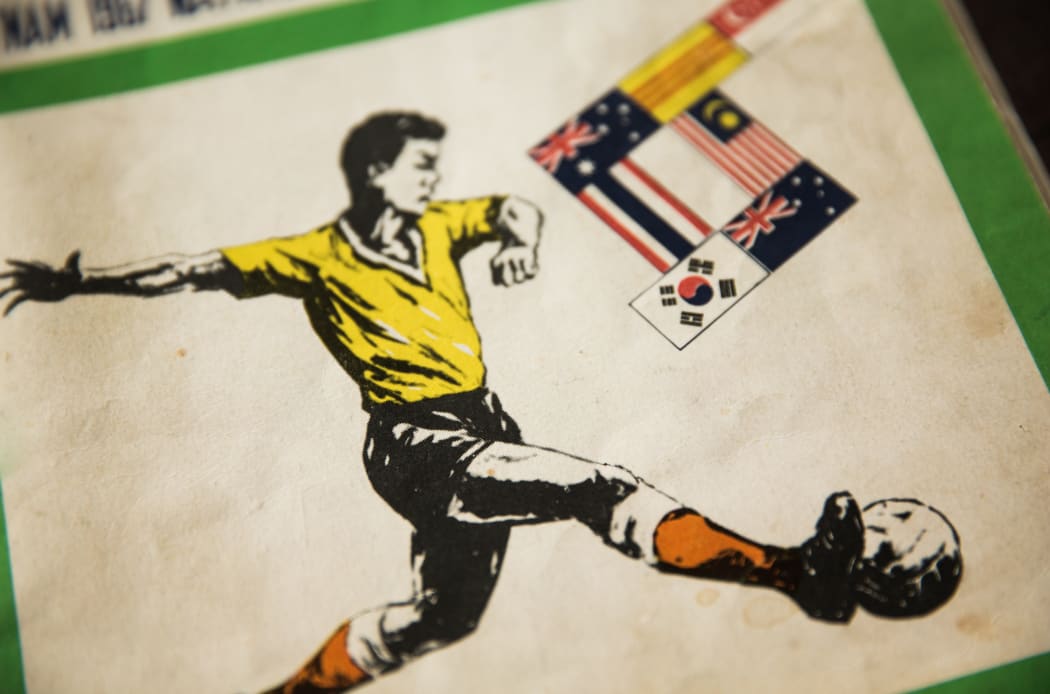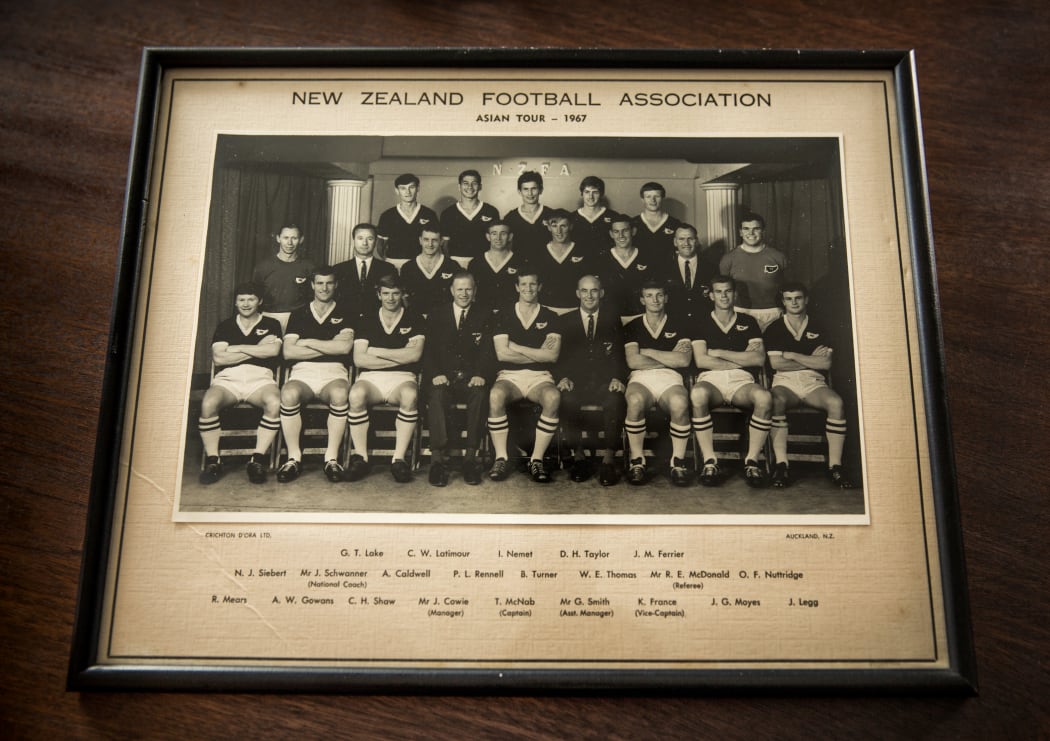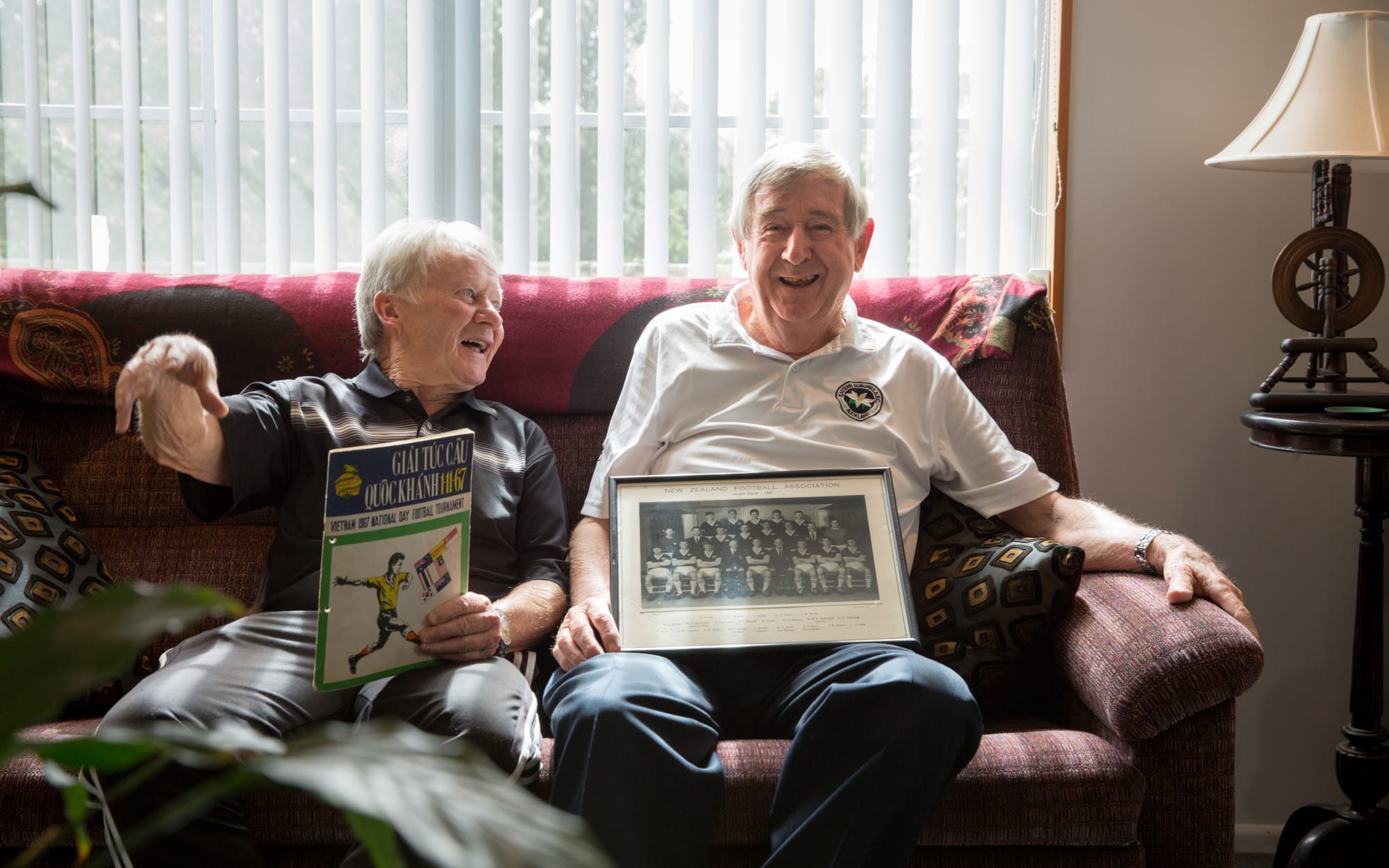Fighter jets swooped low over Saigon. Artillery cracked. Bombs fell. Explosions engulfed the city's far-flung suburbs.
A few miles away, a group of Kiwi amateur football players sat on the roof of their hotel in awe, watching a scarcely believable scene play out.
It was November 1967. The All Whites were occupying front row seats to the Vietnam War.
"I remember [striker] Colin Shaw saying 'there's people out there, being killed," midfielder Paul Rennell told RNZ this week. "It was five miles away and we were watching."
As the All Whites prepare to host Peru in the first leg of their FIFA World Cup qualifier in Wellington tomorrow, the thought of a New Zealand football team - or any Kiwi athlete - heading into a war zone is virtually inconceivable.
Since 1987, the Black Caps have had three tours to Sri Lanka and Pakistan abandoned due to security concerns. The most recent, in 2002, saw a bomb explode outside their Karachi hotel, prompting the team to take the first flight back home.
Yet 50 years ago this month, as Kiwi Prime Minister Jacinda Ardern herself heads to Vietnam for this year's APEC leader's conference, the All Whites packed up their kit bags, boarded a DC-6 and dropped right into a controversial war that would eventually claim 37 New Zealand lives.
They were in Saigon - now Ho Chi Minh City - to participate in the annual Viet Nam National Day tournament. Essentially a propaganda exercise, the eight-team event was an attempt to prove that, despite the bloody civil war with the Communist North, South Vietnam was still a safe place.
"When you think of it, we were stupid going over there," striker Ray Mears says. "It was right in the middle of the Vietnam War, in 1967."
The squad
Managed by former New Zealand test cricketer Jack Cowie and coached by Hungarian Juan Schwanner, the All Whites squad was a mixture of youth and experience.
Former Nottingham Forest player Tommy McNab captained the side, which also featured promising Auckland teenager Brian Turner.
Turner would go on to play professionally in England, earn 59 New Zealand caps and finish his international career at the 1982 FIFA World Cup in Spain.
Eastern Suburbs teammates Rennell and Mears, who both played in the famed clash between Auckland and Manchester United at Carlaw Park earlier that year, were also selected.
Schwanner had coerced Rennell out of retirement for the tournament, forcing the midfielder to miss the best man duties at his brother's wedding.
He recalls experiencing a hair-raising trip into Saigon avoiding anti-aircraft fire in a plane escorted by American fighter jets.
"Because of the war going on, they didn't want planes descending slowly," Rennell, now 79, says. "You were a pop-shot - they could have a go at you.
"When we came in, we had fighter planes with us and all of a sudden, whoosh, you just dropped out of the air… and came into land."
'You know in the back of your mind that a bomb could go off'
The international teams all stayed in the same hotel, and had to observe a strict nightly curfew. While a Viet Cong plan to bomb the building was reportedly defused, the strong military presence in the streets of Saigon was clear.
Dr. Ian McGibbon, a leading Kiwi military historian and author of New Zealand's Vietnam War, says that, in 1967, the risks in Saigon were similar to what they are in Baghdad or Damascus today.
"Every day life is relatively stable, but you know in the back of your mind that a bomb could go off," he says.
Both Mears and Rennell agree, saying one could sense the dangers while still feeling safe.
"One of guys had been in Cyprus [during the 1963-64 Civil War] - he was a bit older," Mears, now 75, says. "We were walking down the street and he'd be looking over his shoulder all of the time."
Rennell says the team saw trucks loaded with dead soldiers parked in front of their hotel.
"You'd see the trucks come by with all the dead bodies thrown in the back," he says. "They'd be taking them off to the morgue."
Strict security around the tournament

Promotional material for the Vietnam tournament. Photo: RNZ / Cole Eastham-Farrelly
Team trainings were held at a South Korean army base an hour outside the city. A snake appeared on the pitch one day, before being shot by a soldier, while Mears remembers the team bus nearly colliding with an American army truck.
"I think he was scared - he was driving like hell," he says. "You know they were targets for the Viet Cong."
The tournament's games were held at Saigon's Cong Hoa Stadium, which, in October 1965, had two bombs explode outside of it. Eleven Vietnamese were killed, including four children.
Security was bulked up during the National Day tournament, with the pitch being swept for mines before the kick off of New Zealand's opening match against Australia on 5 November. Before the opening whistle, artillery barked from a nearby battery.
"That was when Brian Turner was shaking and I was like 'come on mate, you'll be all right'," Rennell says.
Led by legendary skipper Johnny Warren, Australia defeated the All Whites 5-3 in a high-tempo encounter despite a pitch made boggy by monsoon rains. Around 20,000 local fans watched on.
Mears scored a goal for the All Whites, while Rennell contributed two own goals. Both were on international debut.
New Zealand would beat Singapore 3-1 three days later, before being thrashed 5-1 by South Vietnam, who was made up of army regulars, on 11 November. Though they were knocked out of the tournament early, the All Whites won the award for fair play.
'Bloody hell, why did we go there?'
Viral illness swept through the team before their final game, consigning defender Dave Taylor to a Saigon hospital. His prospects for recovery looked grim, Rennell remembers.
"We left him there and Schwanner said 'he's not coming home with us - you'll never see him again'," he says.
Taylor would fortunately make a full recovery, and would notch up 47 caps for New Zealand before retiring in 1981.
"I still give him a big hug whenever I see him," Rennell says. "We thought he was a goner."

Ray Mears and Paul Rennell were team mates in the New Zealand soccer team that played Vietnam in 1967. Photo: RNZ / Cole Eastham-Farrelly
The ranks of All Whites' 'Vietnam veterans' have thinned over the last five decades. McNab passed away in 2006, while Shaw, who also scored against Australia in Saigon, died this August.
Though an unpopular war in the United States, Australia and New Zealand, Mears says there was no political opposition to the conflict amongst the team.
Regardless of the extraordinary conditions, he and Rennell - who are both still based in Auckland, but didn't play again for New Zealand after their South East Asian tour - were just happy to play for their country.
"When you look back and you think about what was happening in Vietnam, you think 'bloody hell, why did we go there?" Rennell says.
"But at that stage, we didn't worry about it. As far as I was concerned I was going to play for New Zealand, and I was coming out of retirement to do it.
"I never thought anything of it. You do think now, why on Earth did we go? But it was for football, and we went. You've got a job to do and you go and do it."
*Ben Stanley is a multiple award-winning sports journalist from Taupō.


